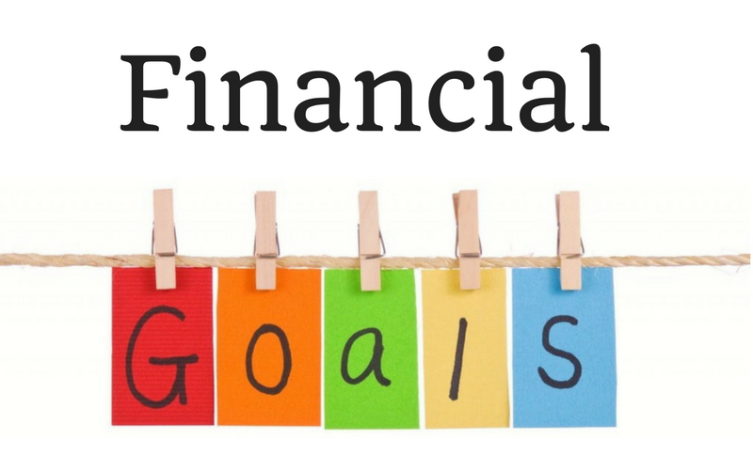Mindful Budgeting: Financial Planning for a Balanced Life
When you hear the word "budgeting," does it make you cringe or break into a sweat? For many, the concept of budgeting feels like a chore—a tedious task best avoided if possible. But what if I told you that budgeting could actually be a pathway to a more balanced and fulfilling life? Enter mindful budgeting—a refreshing approach that combines financial planning with mindfulness to help you manage your money in a way that aligns with your values and goals.
What Is Mindful Budgeting?
Mindful budgeting is more than just tracking your expenses and setting financial goals. It's about approaching your finances with intention and awareness, making sure that your spending aligns with your personal values and long-term objectives. Instead of seeing budgeting as a restrictive exercise, mindful budgeting encourages you to see it as a tool for creating a life of balance and fulfilment.
In essence, mindful budgeting involves:
- Awareness: Understanding your current financial situation and how your spending habits reflect your priorities.
- Intention: Setting financial goals that align with your values and long-term aspirations.
- Flexibility: Being open to adjusting your budget as your needs and goals evolve.
- Reflection: Regularly reviewing and reflecting on your financial decisions to ensure they align with your values.
Why Mindful Budgeting Matters
You might be wondering, "Why should I bother with mindful budgeting? Aren’t spreadsheets and financial apps enough?" Here’s the thing: while traditional budgeting focuses on numbers and saving, mindful budgeting connects your financial decisions with your life goals and personal values. This alignment makes it easier to stick to your budget because it’s not just about cutting costs—it's about investing in what truly matters to you.
1. Aligning Finances with Values
Imagine you’re passionate about environmental conservation. A traditional budget might tell you to cut back on dining out, but a mindful approach would also encourage you to allocate funds towards eco-friendly products or support environmental causes. By aligning your spending with your values, you can feel more satisfied and purposeful about your financial choices.
2. Reducing Financial Stress
Mindful budgeting can help reduce the stress and anxiety that often come with money management. When you approach budgeting with awareness and intention, you’re less likely to experience the fear of the unknown. Regularly reviewing your financial situation and making conscious choices helps you stay on top of your finances, leading to greater peace of mind.
3. Enhancing Financial Well-being
By focusing on what matters most to you, mindful budgeting helps you make financial decisions that enhance your overall well-being. Whether it’s saving for a dream vacation, investing in your education, or supporting your favourite charity, mindful budgeting ensures that your financial plan supports your happiness and fulfilment.
Key Aspects of Mindful Budgeting
1. Create a Vision for Your Life
The first step in mindful budgeting is to create a clear vision of the life you want to live. What are your long-term goals? What values are important to you? By answering these questions, you can create a financial plan that supports your vision. For example, if you value experiences over material possessions, your budget might prioritize travel and personal growth rather than luxury items.
2. Track Your Spending with Awareness
Tracking your spending is a crucial part of mindful budgeting, but it’s not just about recording numbers. Pay attention to how your spending aligns with your values and goals. For instance, if you’re constantly spending on things that don’t bring you joy, it might be time to reassess your budget and focus on what truly matters.
3. Set Intentional Goals
Set financial goals that reflect your values and aspirations. Instead of vague goals like “save more money,” try setting specific, meaningful goals such as “save $1,000 for a family vacation” or “set aside $500 for a charity donation.” These intentional goals will give you a clearer sense of purpose and motivation.
4. Practice Flexibility
Life is unpredictable, and so is your financial journey. Mindful budgeting encourages you to be flexible and adapt your budget as needed. If unexpected expenses arise or your priorities change, adjust your budget accordingly. Flexibility ensures that your financial plan remains relevant and supportive of your evolving needs.
5. Reflect and Review
Regularly review your budget and reflect on your financial decisions. Ask yourself questions like, “Are my spending habits aligning with my values?” and “Am I making progress towards my goals?” This reflection helps you stay connected with your financial plan and make adjustments as necessary.
Real-Life Examples
1. The Family Vacation
Sarah and Mark loved travelling but always felt overwhelmed by the costs. They decided to try mindful budgeting. They began by setting a goal to save for a family vacation. Instead of cutting back on all non-essential spending, they chose to prioritize their vacation fund by reducing expenditures on less meaningful activities. This intentional approach allowed them to enjoy a memorable trip without financial stress.
2. Supporting a Cause
John was passionate about animal welfare but felt he couldn’t afford to make a significant impact. Through mindful budgeting, he reassessed his spending and realized he could reallocate funds from dining out to donate to animal charities. By aligning his budget with his values, John felt more fulfilled and made a positive difference in the causes he cared about.
Getting Started with Mindful Budgeting
Ready to dive into mindful budgeting? Here’s a step-by-step guide to get you started:
1. Define Your Values: Identify what’s most important to you. This could be family, health, education, or community involvement.
2. Set Goals: Create specific, meaningful financial goals that reflect your values.
3. Track Your Spending: Use a budgeting tool or app to monitor your spending and evaluate how it aligns with your goals.
4. Create a Flexible Budget: Design a budget that allows for flexibility and adjustments based on your evolving needs and priorities.
5. Reflect Regularly: Set aside time each month to review your budget, reflect on your spending, and make necessary adjustments.
Conclusion
Mindful budgeting isn’t just about numbers—it’s about creating a financial plan that supports a balanced and fulfilling life. By aligning your spending with your values, setting intentional goals, and practising flexibility, you can transform budgeting from a mundane task into a powerful tool for personal growth and well-being.
So, why not give mindful budgeting a try? Start by defining your values, setting meaningful goals, and tracking your spending with awareness. You might just find that mindful budgeting leads to a more satisfying and balanced life, where every financial decision is a step towards your dreams and aspirations. Curious to explore more about mindful budgeting? Dive deeper into how this approach can transform your financial journey and unlock new possibilities for a balanced and purposeful life. Happy budgeting!









Comments
Post a Comment